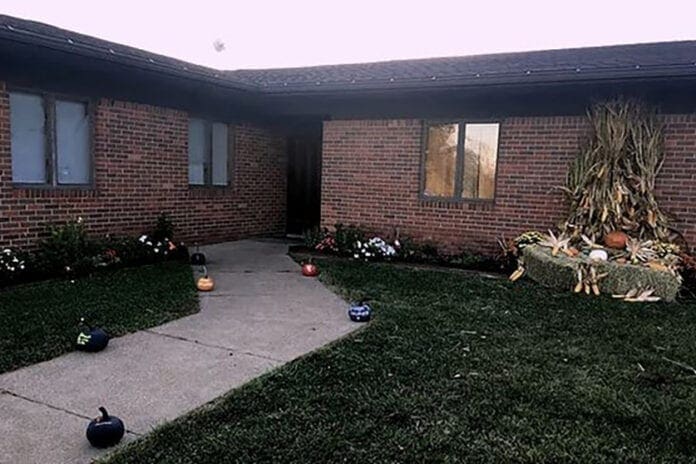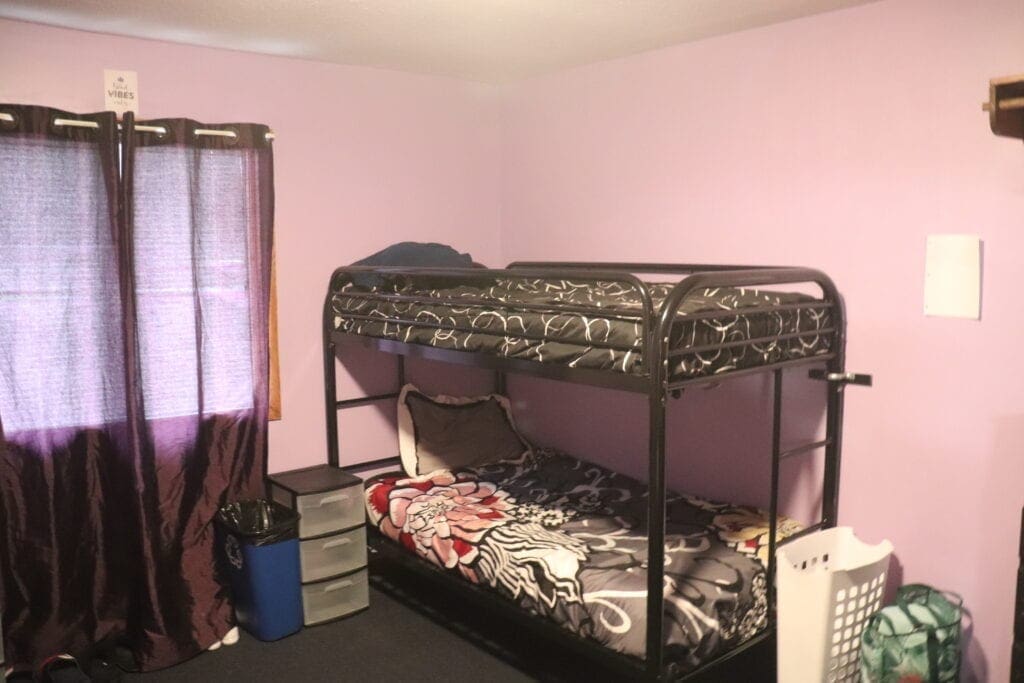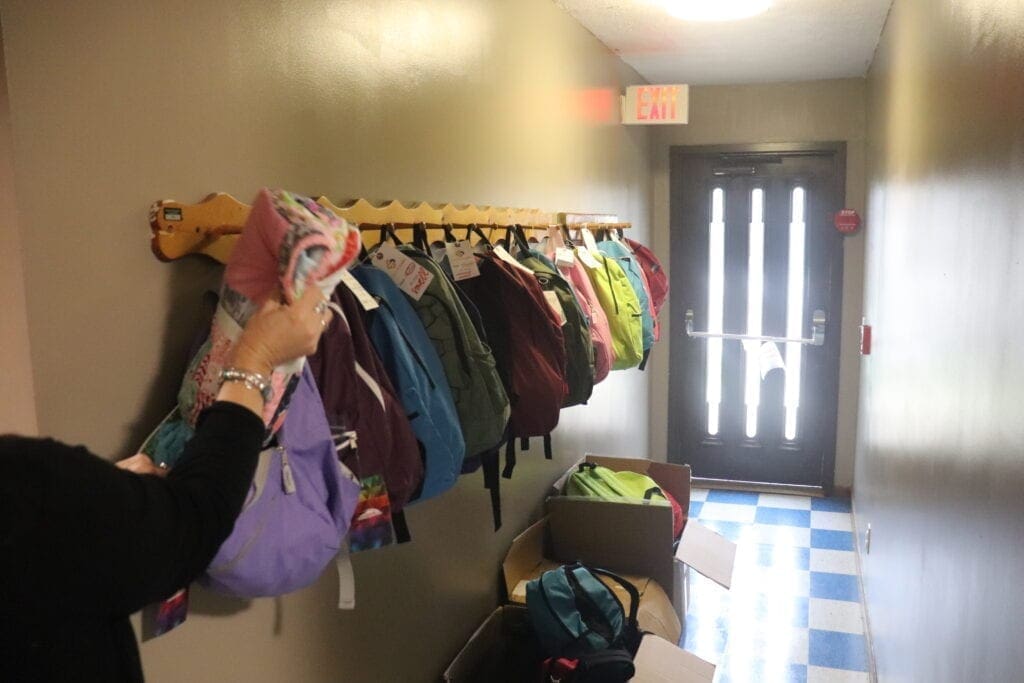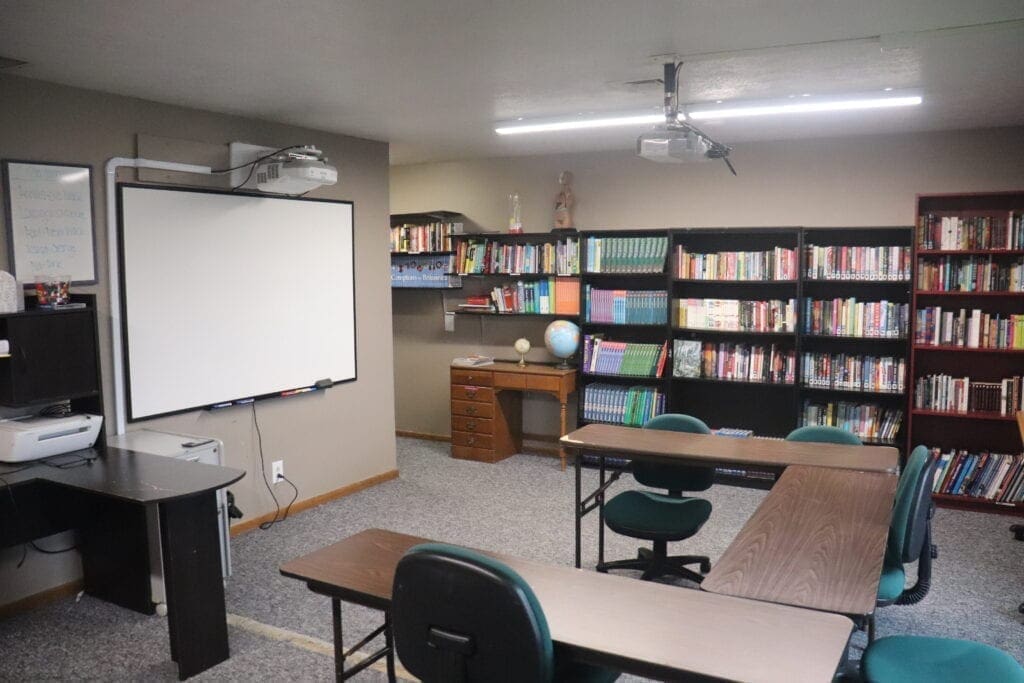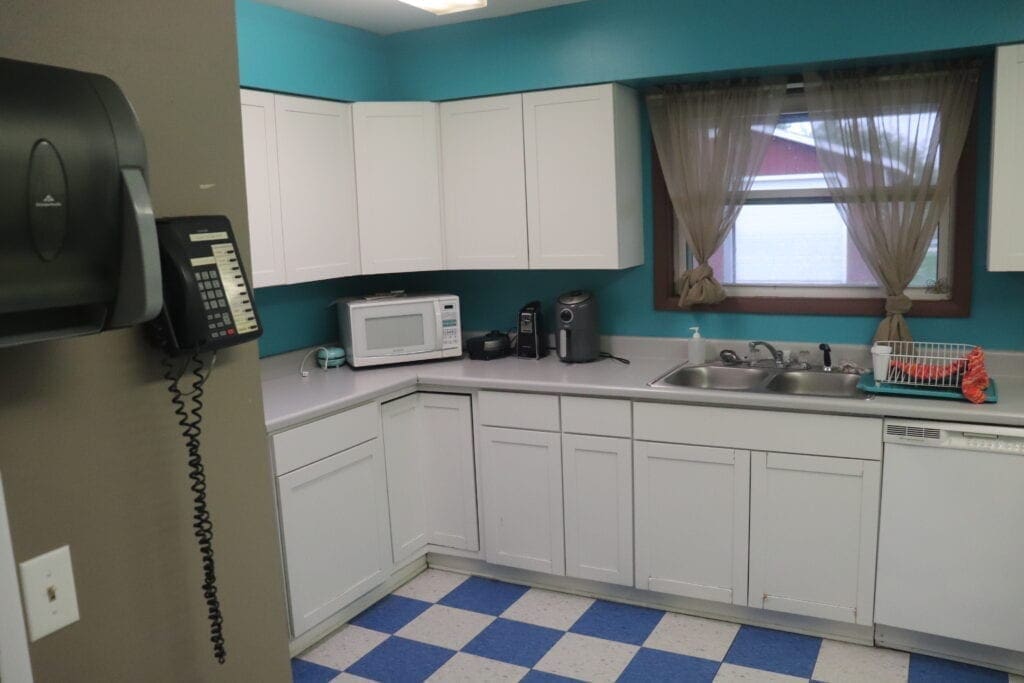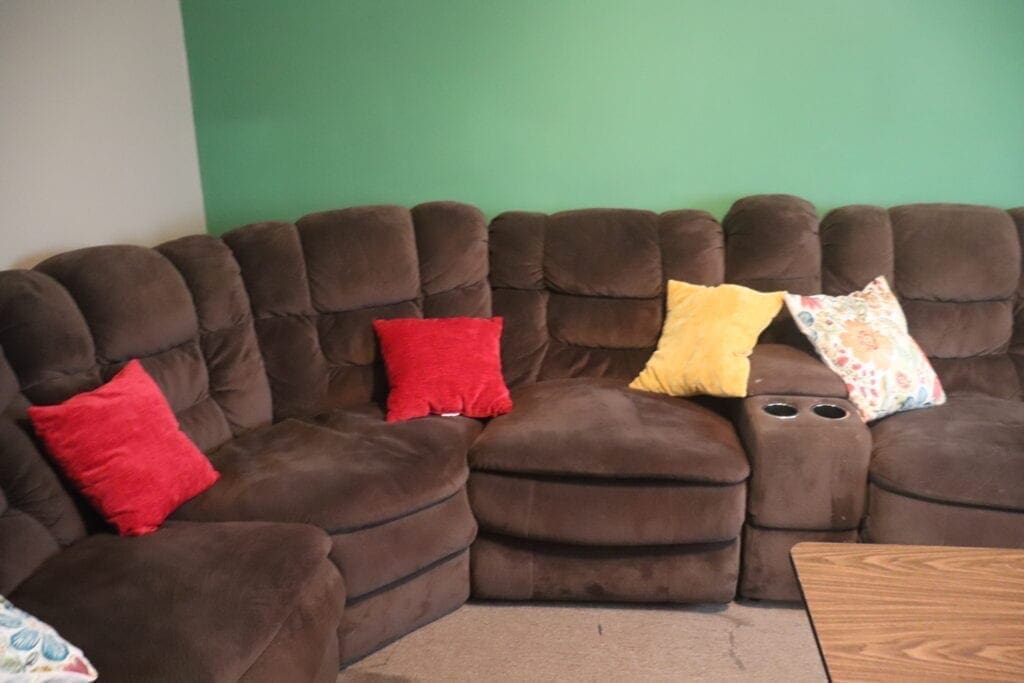Navigating life’s changes as a pre-teen or teenaged girl is difficult enough under ideal circumstances. Hormones, internal body changes, external body changes, socialization, and a little thing called school tend to make things difficult.
That’s under ideal circumstances. But what about non-ideal circumstances. Some kids have to deal with all that, plus having only one parent, or two freshly divorced parents, or worse yet, no parents.
Maybe they are bounced around from foster home to foster home. Then there are kids with two parents, but maybe one or both are neglectful or abusive in some fashion. All it does is take an already tough stretch of life and double down on the difficulty.
There are a number of reasons a young girl could find herself in need of the services of the Belmont Harrison Judicial. Some girls find themselves needing the services of the Belmont-Harrison Juvenile District and, in particular, the Future Stories facility outside of St. Clairsville.
Future Stories, formerly the Gender Specific Program (GSP) until 2019, is a temporary home for nonviolent girls placed either by the juvenile court system or children’s services.
Some girls come to the facility through no fault of their own. Others are kids who may have made a wrong decision or two, but all need help in some fashion whether they admit it initially or not.
“Most of the girls come in crying but also leave crying for an entirely different reason,” said Heather Weekley, Administrator for the facility and its former therapist.
Most girls don’t want to be there initially. Whether coming from a good home environment or not, it’s still a major change, and the initial reluctance takes time to wear off. An adjustment period is necessary.
But when the girls are ready to leave Future Stories, they don’t want to. They come to find the camaraderie and feeling of family grows during their time at the facility, both with their fellow residents and staff.
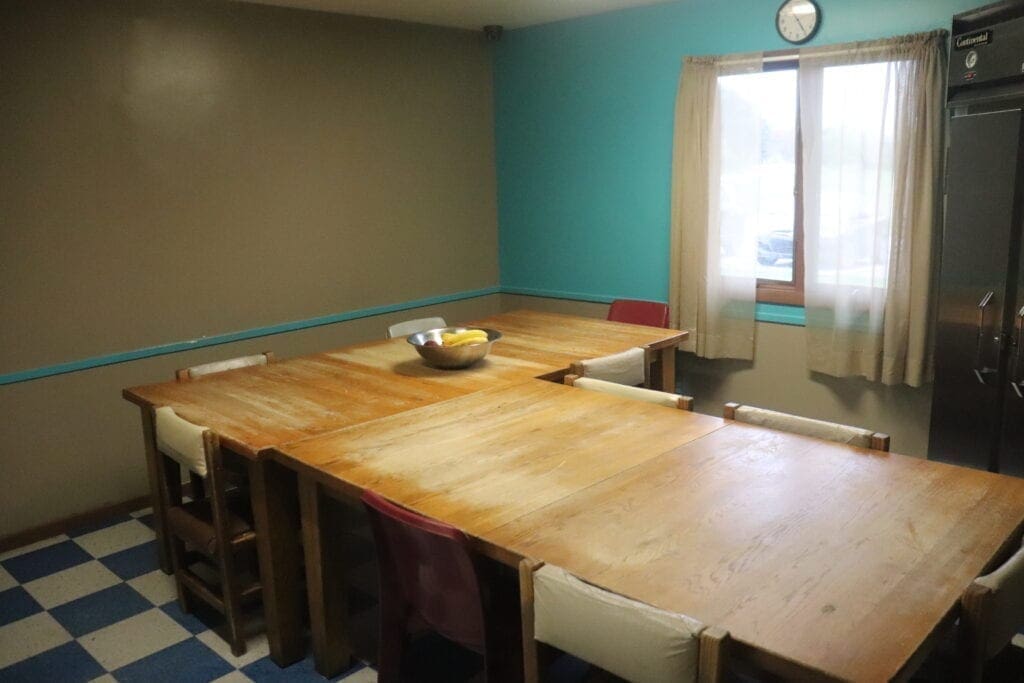
Residents eat together around the table with staff members at each meal to give it a more family-style atmosphere. 
The bedrooms feature some bunk and single beds, along with desks and dressers for storage. The girls are allowed to personalize their rooms if they so choose. The furniture and other accessories are usually donated from outside the agency.
But What is Future Stories?
The facility’s program lasts 90 days for each resident. However, as Weekley described it, that’s 90 earned days. The are four levels to the program, and each encompasses certain tasks and standards that must be met.
It’s also a nonlocked facility, meaning the girls must choose to participate in the program. They have to choose to work the program.
“There are kids who have been here five months physically, but are only on day 45,” Weekley admitted.
There is a points system that goes toward earning days, in addition to privileges, as they progress through the levels.
In addition to their schoolwork, the girls are taught and tested on various life skills like cooking and cleaning and more concentrated areas like first aid, dating safety, and Internet safety.
Those in level four and age appropriate will work on simulated college scheduling, a career search, job search, and money management skills.
There’s also a baby budget that must be done and caring for an egg. In the past, the facility utilized one of the lifelike dolls that each girl took turns taking car of. It responded to touch and also cried and could be set on one of two settings: average baby or drug-addicted baby.
Girls who entered the program with any substance abuse challenges were automatically given the more difficult setting. Others could choose it, however, for the opportunity for increased point-earning potential.
But Future Stories is far more than just teaching basic and life skills and continuing their schooling. It’s about learning to value one’s self worth, realize one’s potential, and work to overcome any obstacles that perhaps landed the residents here.
In addition to the licensed teacher for the classroom, the facility has a therapist that not only does individual counseling for the girls but can also administer family counseling.

These backpacks are available to each girl when they enter the facility, full of personal care and hygiene items, along with a blanket and clothes. 
A mixture of old and new in the Future Stories classrooms. There is a smart board but also carpet in need or repair. The facility utilizes a lot of hand-me-down items and furniture to help supplement its operating budget.
Daily Operations and the Wish List
The facility is staffed around the clock. The girls awake in the morning and attend school all in the same classroom with individualized instruction based upon learning levels.
They all eat breakfast, lunch, and dinner together in the dining room as a “family” with the girls responsible for preparing the different meals. Their roles change depending upon the day, but everyone helps out. After school, there are quiet time, more chores to be done, and various types of programming. Activities like movies with a message that feature group discussion following watching, or girls’ circle that works on different types of relationship building and empowering.
“We want to empower the girls to build each other up and realize we are on the same team,” Weekley said. “Not to see each other as the enemy and teach each other down.”
The girls could also earn activity privileges, many of which used to consist of venturing outside the facility for bowling, eating out, and other fun activities. However, with COVID, those opportunities have been on hiatus. The facility itself can house up to 12 girls, but for distancing purposes that number is also lower presently.
Future Stories does have an operating budget which covers basic necessities, toiletries, bedding, clothes, and other general items for the girls. Each girl has her own bed, and the facility has two dedicated bathrooms for residents.
There is a small but dedicated group of area residents that do donate regularly to the facility, but as with most organizations, donations have been down with COVID. So that, coupled with having to stay inside primarily because of pandemic restrictions, the staff had the girls come up with a wish list for the facility.
There is a specific Wish List on Amazon.com that can be accessed, but it also put out a general list found below:
| – XBOX | – PS4 |
| – Nintendo Switch | – Any other gaming systems |
| Games | – Animal crossing |
| – Mario Cart | – Mine craft |
| – Any other games that are rated Teen and below | Kitchen Gadgets |
| – Stand Mixer | – Large Air fryer |
| – Sno cone Maker | – Ice Cream Maker |
| – Keurig | – Grill |
| – Any other cool kitchen gadgets | Art Supplies |
| – Canvases | – Paints |
| – Stencils | – Charcoal |
| – Sketch pads | – Tie Dye Kits |
| – Any other art supplies | Outside Furniture |
| – Any Patio Furniture | – Table with chairs & umbrella |
| – Patio swing | – Lounge chair |
| – Hammock Swings | – Projector & Screen |
| – Firewood for our firepit | Outside Recreation |
| – Cornhole boards and bags | – Chalk |
| – Bubbles | – Jump ropes |
| – Basketball hoop and ball | – Volleyball net and ball |
| – Slip n slide | – Frisbees |
| – Any other outdoor activities | Miscellaneous Items |
| – Hair tools | – Hair products |
| – Nail polish | – Make up (new) |
| – Pub table and chairs | – Gift cards for online movies (Redbox, Fandango, etc.) |
| – Gift cards to Restaurants | – Wall art |
There are a few luxury items on the list, but it’s called a Wish List for a reason. Weekley said when it was first posted online, a few people took issue with some of the more expensive items on the list.
“We had some negative comments on our wish list, saying why aren’t you asking for hygiene items, clothes, things like that,” Weekley said. “Within our operating budget, we have the money to provide those things. But that doesn’t account for any extra or luxury items, even things like jump ropes, bubbles, chalk, art supplies—things that help make a home a home.
“I know when I make a Christmas list, I’m not asking for basic things, so why can’t our girls ask for luxury items too?”
It’s not just video games systems on the list. There are kitchen supplies, art supplies, sports and activity equipment, and even items for the facility’s back porch — anything to make it feel more like home.
Anyone wishing to donate can drop the items off at Future Stories, the red brick building located at 45232 National Road West in St. Clairsville.

The kitchen is where the girls prepare daily meals and take turns with various responsibilities. In addition to the pre-planned menu, Heather Weekley said some of the girls enjoy making items or meals that hold special meaning for them, to share with their fellow residents. 
This coach makes up a large portion of the living room, where the girls can go to watch a movie or have a meeting with their family or case worker. This is one of the many donated items to the facility.
Success Stories
Two young ladies were willing to talk with LedeNews via a Zoom call while touring the facility—Kayla and Nikki
Kayla is currently serving in the United States Army and is at Fort Bliss in Texas with her husband and their 7-month old child.
She came to Future Stories, then known as GSP, on two occasions — once when she was 11 and again at 17.
She credits both her stays, especially the second time around, with her ability to get everything together and find the right path in life.
“When I was there the first time, I had a lot of problems related to anger issues and learning how to deal with and handle my emotions and typical 11-year-old issues,” Kayla said. “But I learned how to clean, perform basic living skills, talk to counselors, and I was able to progress emotionally.”
Her second time there, Kayla was fully ready to take advantage of the program. She already knew the routine, but while living there, she also participated in volleyball, worked a part-time job, and credits Future Stories for helping shape her as a person.
“The people there, both past and present, will always hold a place near and dear to my heart,” she said. “They are my family. I talk to many of them still today, both residents and workers. They have definitely been there for me.”
Nikki has been out of the program for four or five years. She’s currently a full-time mom to her two young sons while also working full-time making $13 an hour and going to school part-time to become a phlebotomist.
Similar to Kayla, Nikki took two trips through the program to fully benefit, and she admitted the that the first time around she really wasn’t interested in being there or taking in what was offered.
“I was negative and felt like nothing good was going to come out of it and that it was all pointless,” Nikki admitted. “I just wanted to do what I had to do and go home. But I learned getting away from my house was a way of peace for me. So, when I got in trouble again, I asked them to send me back. I wanted to try it again.
“This time, I went through it with positive energy, and the staff became like family to me. The different girls in my house were family, my sisters and the staff; I call them all my second moms.”
Nikki admitted that while she initially didn’t like the rules and restrictions, that was exactly what she needed to get her life back on track and moving in a positive direction.
For both girls, and many like them that progress through the program, having someone they can depend on to talk to, either about personal issues or just day-to-day events is huge in their recovery.
That’s why sometimes, Weekley admits she’ll see a change in the behavior of her residents as they begin to reach their 90 days earned. They will self-sabotage because it does become a home and their family, and they don’t want to leave.
Not everyone is born with ideal circumstances and difficult situation can make progressing through the teenage years all the more challenging. But with places like Future Stories helping young girls navigate these challenges and learning to cope, the future stories of these young ladies start to look a lot brighter.

